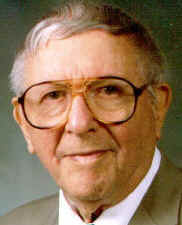|

|
Commentary by
Dr. Gerhard Falk
|
How
to Become a Professor
Over the years, I have repeatedly met people who told me that they earned their
livelihood by working in an area which they did not like. I know several lawyers
who told me they became lawyers because they needed to do something to earn a
paycheck . I met two MDs who left medicine because they hated the profession .
One of these doctors earned a Ph.D. in mathematics and was happy to be a math
professor, leaving a medical practice behind. The second MD I knew was one who
had left the medical profession and told me that he quit his residency after he
already had the MD degree. There are of course many others who sell things, run
some business, or work in a factory or an office, and wish they could do
something more satisfying. Therefore I will now tell you how to become a
professor.
Keep
in mind that professor is not a teaching job, despite the evidence that
professors appear to be doing the same thing as high school teacher does.
The aspirant for a professor’s appointment must have earned a doctorate and
must have demonstrated the ability to publish journal articles and books of an
academic quality.
Depending on the candidate’s interests, there are several doctorates available
at most universities. The requirements to gain a doctorate are the same except
for the M.D., the Doctor of Dental Medicine, the degree of Doctor of Law, and
Doctor of Veterinary Medicine. These professional degrees do not require a
dissertation nor do they require the several examinations needed to earn an Ed.D.
(Education), Ph.D. (Teacher of the Love of Wisdom), D. Sc. (Doctor of Science),
D. Soc. Sc.(Doctor of Social Science), D. Music, Doctor of Nursing, etc.
Remember that all doctorates demand the same writings and examinations.
The most basic need the candidate for any doctorate must display is a B.Sc. or
B.A. degree consisting of 120 credit hours of undergraduate work. The candidate
for an advanced degree must have earned a B average, although I am told that
some of the so called “party” schools allow any student to gain a Master’s
degree.
In a reputable university, the candidate for a graduate degree must pass the
Graduate Record Examination. The Graduate Record Examination is a two day
multiple choice examination. The candidate needs to display a score of at least
800 out of 1000 questions. This is accomplished in that the candidates B.A or B.
Sc. average is multiplied. For example, a student earns a B average during his
college career. The B average is changed from 3.0 to 300. Now assume the
candidate has answered 50 questions correctly and is given 300 more, he then ha
a score of 800, which is sufficient to pass the examination.
Now the candidate must pass a two language reading exam. The two languages are
usually German and French. However, if the candidate expects to write a
dissertation involving Italy or China, he must demonstrate the ability to read
the languages of these countries.
Following the language exams, the candidate must take another 60 credits or two
years of class lectures followed by a five question “preliminary
examination.” Here is an example of five questions answered by a
candidate for a doctorate in education. 1. What was the influence of the
philosopher John Dewey on American education? 2. Statistics. 3. Write an essay
on early childhood education. 4. Describe education in a European country. 5.
What was the method of education in ancient Greece?
If the candidate passes this or a similar examination, he may then write a
dissertation of three hundred pages of ten chapters. Only those who passed the
preliminary examination may write a dissertation. Dissertation is a French word
meaning discussion.
In order to write a dissertation, the candidate needs to find at least three
professors willing to be the dissertation committee. The chair of that committee
becomes the dissertation advisor. The candidate now writes a proposal concerning
his probable dissertation topic. If accepted by the committee he may proceed. If
not accepted, he needs to make a different proposal. The issue is whether or not
the proposal includes some new and heretofore not presented idea regarding the
topic. I wrote a dissertation concerning the immigration of the European
scholars to the United States during the Nazi era. I interviewed a number of
scholars concerning their contributions to American scholarship and added
numerous scholars by means of gaining access to the scholars’ biographies.
As the candidate makes progress in writing his dissertation, his advisor reads
each chapter and makes suggestions concerning addition and changes. On
completion of the dissertation, the candidate defends his book by having any
professor who wants to do so subject him to questions. Normally the defense
results in acceptance of the dissertation and the granting of the degree.
With the degree of doctor, the candidate can now be appointed as an assistant
professor for one year. If during that year the new assistant demonstrates
ability to teach and write at least one journal article, he is appointed to a
three year term and then another three years. At the end of six years, the
department decides whether or not to keep the assistant professor. This depends
on the publications of the assistant. He would need at least six journal
articles to be appointed an associate professor, giving him a lifetime tenure or
a continuing appointment.
The majority of professors remain associates with a lifetime appointment. Those
who wish to be promoted to professor must write numerous books. For example, I
wrote thirty books and therefore became a professor, receiving a number of
achievement citations and much bigger salary.
If this occupation interests you, get busy and learn English. It helps.
Best wishes, dear reader.
Shalom
u'vracha.
| 